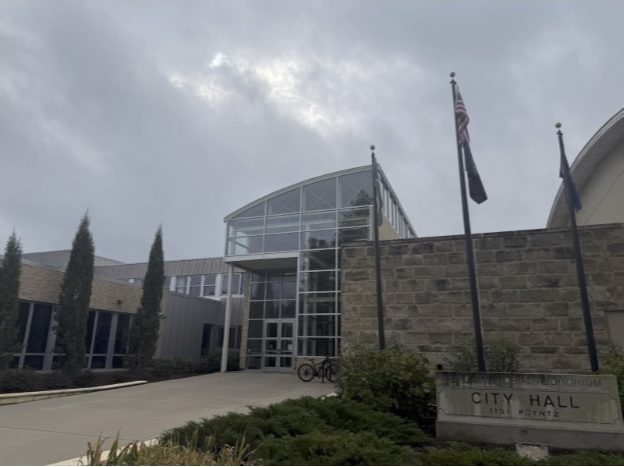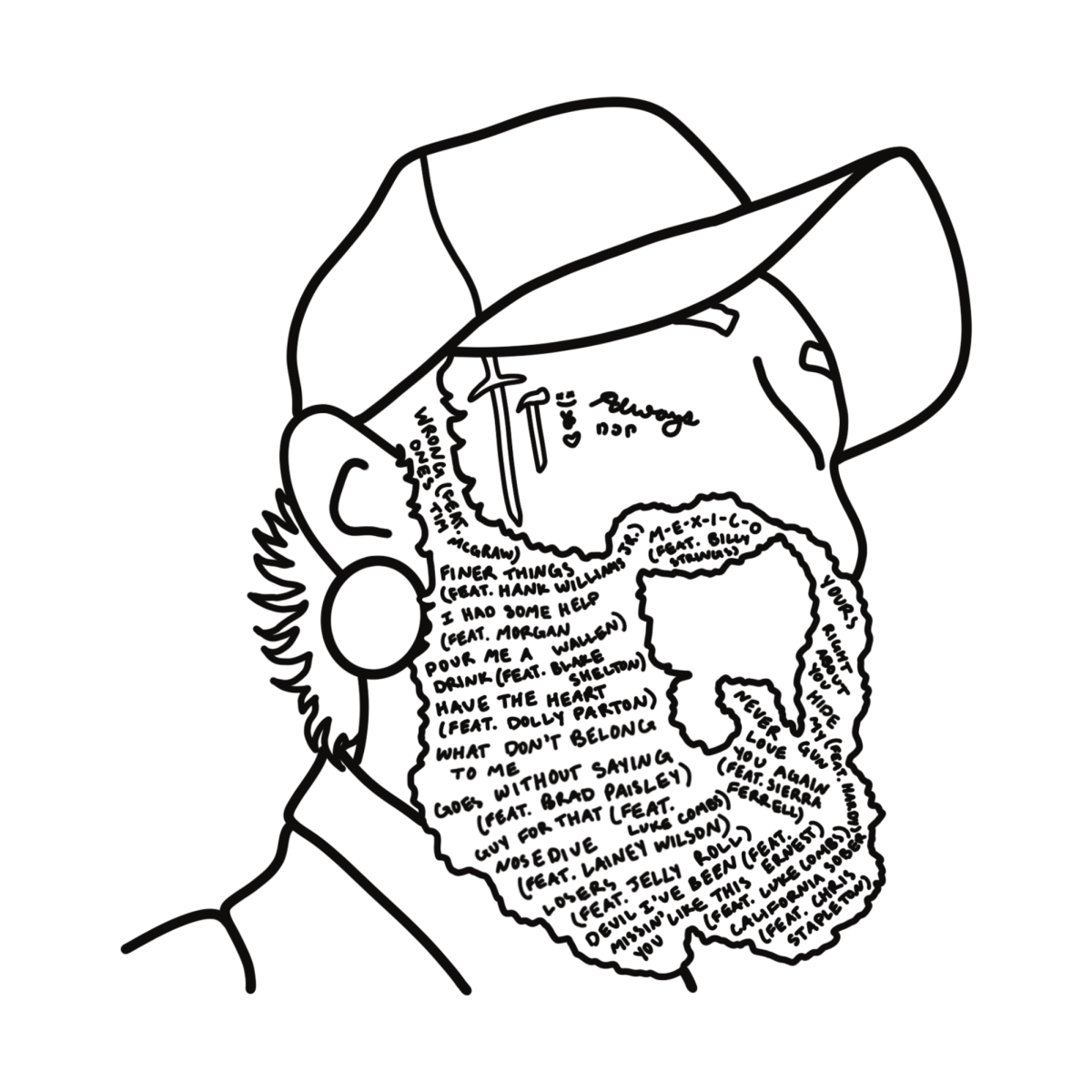Austin Richard Post moved to Grapevine, Texas when he was nine. His father was a DJ, so Post grew up around everything from country to hip-hop to heavy metal in the Lone Star State. Video games like “Guitar Hero” inspired Post to learn the guitar, and since the release of “White Iverson” in July 2015 under the stage name “Post Malone,” his catalog of hip-hop, pop, R&B, trap, rap-rock and more have continued to grow. In May 2015, he tweeted, “WHEN I TURN 30 I’M BECOMING A COUNTRY/FOLK SINGER.” At 29 years old, he’s done just that.
The full 18-song album “F-1 Trillion” was released Aug. 15, immediately followed by the 27-song “Long Bed” version on Aug. 16. The album secured the No. 1 spot not only on Billboard’s Top Country Albums but also on the Billboard Top 200 across all genres, making Malone the first artist to reach No. 1 on the Top Country, Rap and Rock & Alternative Album charts.
I’ll be honest: I raised an eyebrow in May when Post Malone’s “I Had Some Help” feat. Morgan Wallen hit my Spotify homepage. I didn’t want to be disappointed by another clap-track-laced country-wannabe that relies too much on an 808 trap beat, full of so many unoriginal tropes and recycled references that the lyrics sound like the product of A.I. inbreeding.
Instead, my fears flew out the window when the crisp plucking of a banjo and an acoustic guitar opened the first verse with Malone’s raspy southern rock tone in the intro to “Wrong Ones” feat. Tim McGraw.
What astounded me was how big a collaboration the album is — Malone only sang three songs solo on “F-1 Trillion.” Every other track featured a country legend, household name or other rising star, including newer Nashville A-lister Luke Combs, who helped Malone and his team write the album.
The songs were mostly styled similar to the work of the various featured artists, like “Finer Things” feat. Hank Williams Jr. The story takes the filthy rich “high life” that rappers love to flaunt and puts a backwoods spin on it with the energy of Williams’ upbeat classics like “Born to Boogie” and “All My Rowdy Friends Are Coming Over Tonight.”
Malone harmonizes with Country Music Hall of Famer Dolly Parton in “Have the Heart,” an upbeat track that feels like walking into an energetic country dance bar filled with rainbow lights and buzzing neon signs. The simple lyrics make for a cute honky-tonk show tune, painting the picture of two lovers who can’t seem to leave each other.
However, the overuse of autotune became painfully more apparent with every listen. Some songs had heavier electronic alterations than others, but it was most evident on the tracks featuring Parton, McGraw and Brad Paisley.
The album’s producers, Louis Bell and Charlie Handsome, are adjusted to a much heavier post-production pop sound. Still, the more I listened to Parton’s voice, the more unnecessarily choppy vocals I heard. With this many big artists featured on a project, I had hoped to hear each one’s unique timbre, not another version of electronic pop “perfection” that removes humanity from the sound.
Malone has some excellent, authentic-sounding covers of his favorite country songs that weren’t put through the post-production ringer as hard as “F-1 Trillion” was. I prefer that more raw, natural sound, so I enjoyed listening to those performances.
In contrast to the autotune vocal dicing, “Nosedive” feat. Lainey Wilson interlaced a proper balance of mixing and mastering, where the thickly layered harmonies at the end gave me goosebumps. The melody weaves through a descending scale and downward slides in the guitar line, showing that sense of falling through the air. Just as the pitches slide downward, they slide upward again, with the reminder that the low points will soon come to an end.
After learning about Malone’s struggles with depression, loneliness and addiction throughout his career, the context for “Nosedive” runs deep. It’s making peace with the fact that all of life is worth appreciating — even the darkest, ugliest parts — simply because we exist to experience it. The highs and lows are temporary; if simply waking up and facing the world is all you can do, that is enough.
After five duets of buildup, Malone’s first solo on the album, “What Don’t Belong To Me,” felt like a true blend of his musical styles, with the pop structure his fans are used to shining alongside the country band and sliding steel guitar ambiance.
Despite its downsides, this album remarkably defied my expectations. It’s good for what it is: another rap/pop star starting his first professional adventure into country music. The next time some country “Posty” hits my Spotify homepage, I won’t be so quick to judge, and I hope you’ll give it a chance, too.
























































































































Joe Lazenby • Sep 8, 2024 at 11:59 am
Bocephus and his father Hank Williams are two people to be reckoned with ! They are in my heart forever and a day !